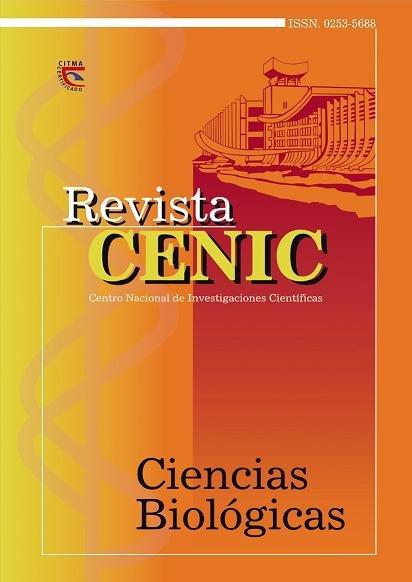IgG antibodies to dengue in dry blood samples in filter paper
Abstract
This paper presents a standardized procedure for the detection of IgG antibodies to dengue virus in blood samples taken from filter paper. The samples were obtained from 216 blood donor persons, 25 of them had IH titer superior of 1:40. All the samples were tested for IgG antibody against dengue virus by means of capture enzyme immunoassay (UMELISA). In a comparison of the results when the elution was perform 30 min. and 1 hour the agreement between the results of the test and those of the UMELISA using serum samples were 93 y 100 % respectively. In both conditions the incubation of the samples in the reaction plate, were 1 hour at 37 º C and 1 hour room temperature, the agreement were 100 %, the same method was employed with, the serum samples (one hour a 37 º C). When we analyzed all samples the result of the sensitivity and specificity were 100 % when the samples were collected in whole blood on filter paper stored at room temperature and when it was stored a 4 º C, for one month and 4 months respectively. The authors recommend the use of this method in the dengue IgG antibody determination is recom-mended.
Downloads

Downloads
Published
How to Cite
Issue
Section
License
Copyright (c) 2003 Copyright (c) 2003 Revista CENIC Ciencias Biológicas.

This work is licensed under a Creative Commons Attribution-NonCommercial-ShareAlike 4.0 International License.
Los autores que publican en esta revista están de acuerdo con los siguientes términos:
Los autores conservan los derechos de autor y garantizan a la revista el derecho de ser la primera publicación del trabajo al igual que licenciado bajo una Creative Commons Atribución-NoComercial-CompartirIgual 4.0 Internacional que permite a otros compartir el trabajo con un reconocimiento de la autoría del trabajo y la publicación inicial en esta revista.
Los autores pueden establecer por separado acuerdos adicionales para la distribución no exclusiva de la versión de la obra publicada en la revista (por ejemplo, situarlo en un repositorio institucional o publicarlo en un libro), con un reconocimiento de su publicación inicial en esta revista.
Se permite y se anima a los autores a difundir sus trabajos electrónicamente (por ejemplo, en repositorios institucionales o en su propio sitio web) antes y durante el proceso de envío, ya que puede dar lugar a intercambios productivos, así como a una citación más temprana y mayor de los trabajos publicados (Véase The Effect of Open Access) (en inglés).














